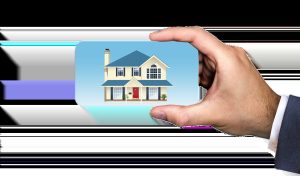Climate Control Evolution: The End of Traditional HVAC?
The world is changing rapidly, and one of the industries that is facing significant transformation is HVAC (heating, ventilation, and air conditioning). As we become more aware of the impact of climate change and the need for sustainability, traditional HVAC systems are becoming obsolete. This is where climate control evolution comes in. With advancements in technology and a growing demand for energy-efficient solutions, the traditional HVAC systems may soon become a thing of the past. In this article, we will delve into the current state of HVAC systems and how climate control evolution is shaping the future of this industry.
The Evolution of HVAC Systems
HVAC systems have been around for over a century, and they have served us well. These systems provide us with comfortable living and working environments by controlling temperature, humidity, and air quality. However, as our needs and awareness of environmental issues have evolved, so have our expectations from these systems.
One of the main drivers for the evolution of HVAC systems is the need for energy efficiency. Traditional HVAC systems consume a significant amount of energy, and with the rising cost of energy and the push for sustainable solutions, the industry is shifting towards more efficient options. This has led to the emergence of climate control systems that aim to provide the same level of comfort while using less energy.
The Impact of Climate Change
The impact of climate change cannot be ignored. Rising temperatures, extreme weather events, and air pollution are just some of the consequences of climate change. This has put pressure on governments and businesses to reduce their carbon footprint and move towards more sustainable practices. HVAC systems, being one of the biggest energy consumers, are in the spotlight for their role in contributing to carbon emissions.
In response, HVAC manufacturers are investing in research and development to come up with energy-efficient solutions. From smart thermostats to variable refrigerant flow systems, the industry is constantly evolving to meet the demands of a changing world.
The Rise of Smart Buildings
Along with the advancements in HVAC technology, we are also seeing the rise of smart buildings. These buildings use connected devices and sensors to monitor and regulate various systems, including HVAC. This allows for more precise control of temperatures and air quality, resulting in reduced energy consumption and lower utility costs.
One of the key features of smart buildings is the ability to gather data in real-time. This data is then analyzed to make informed decisions regarding energy usage, maintenance needs, and overall building efficiency. This not only results in cost savings but also improves the overall occupant experience by providing a more comfortable and healthier environment.
The Role of Artificial Intelligence
Artificial intelligence (AI) has also made its way into the HVAC industry, further contributing to the evolution of climate control systems. AI algorithms can analyze data and adjust HVAC systems in real-time, optimizing energy consumption and providing a personalized experience for the occupants.
Moreover, AI-powered HVAC systems can also predict maintenance needs, reducing downtime and saving on repair costs. This not only benefits building owners but also HVAC companies as they can provide better and more proactive services to their clients.
The Future of HVAC Systems
As climate control evolution continues, we can expect to see more innovative solutions that are not only energy-efficient but also environmentally friendly. With the rise of renewable energy sources, such as solar and wind power, we may see more HVAC systems powered by clean energy.
In addition, the integration of smart buildings and AI technology will also have a significant impact on the future of HVAC systems. The ability to collect and analyze data in real-time will lead to more efficient and personalized solutions, resulting in improved comfort and cost savings.
The End of Traditional HVAC?
While traditional HVAC systems may not disappear completely, they will likely become less prevalent as we move towards a greener and more technologically advanced future. Climate control evolution is revolutionizing the industry, and it is only a matter of time before traditional HVAC becomes a thing of the past.
In conclusion, climate control evolution is transforming the HVAC industry, and the changes witnessed so far are just the beginning. As we continue to prioritize sustainability and energy efficiency, we can expect to see more innovative solutions that will shape the way we control our indoor climate. The end of traditional HVAC is on the horizon, and we are moving towards a more sustainable and comfortable future.





